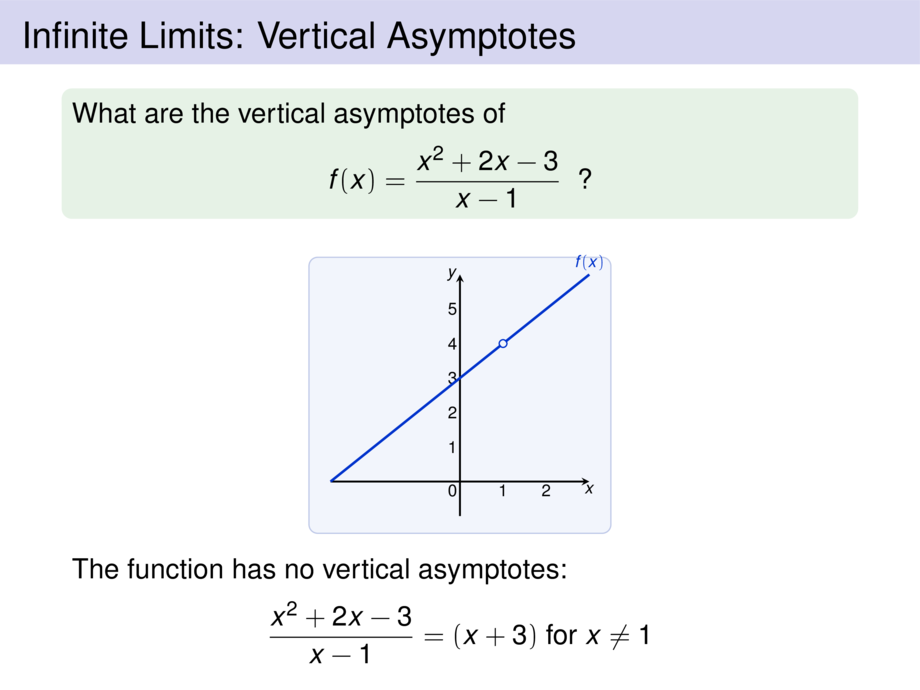



































































































152/154
\begin{frame}
\frametitle{Infinite Limits: Vertical Asymptotes}
\begin{exampleblock}{}
What are the vertical asymptotes of
\begin{talign}
f(x) = \frac{x^2 + 2x -3}{x-1} \;\text{ ?}
\end{talign}
\end{exampleblock}
\pause\smallskip
\begin{center}
\scalebox{.6}{
\begin{tikzpicture}[default,baseline=-1ex,yscale=.8]
\diagram{-3}{3}{-1}{6}{0}
\diagramannotatez
\diagramannotatex{1,2}
\diagramannotatey{1,2,3,4,5}
\draw[cblue,ultra thick] plot[smooth,domain=-3:3,samples=20] function{(x**2 + 2*x -3)/(x-1)} node [above] {$f(x)$};
\node[exclude=cblue] at (1,4) {};
\end{tikzpicture}
}
\end{center}
The function has no vertical asymptotes:
\begin{talign}
\frac{x^2 + 2x -3}{x-1} = (x+3) \text{ for $x \ne 1$}
\end{talign}
\end{frame}

